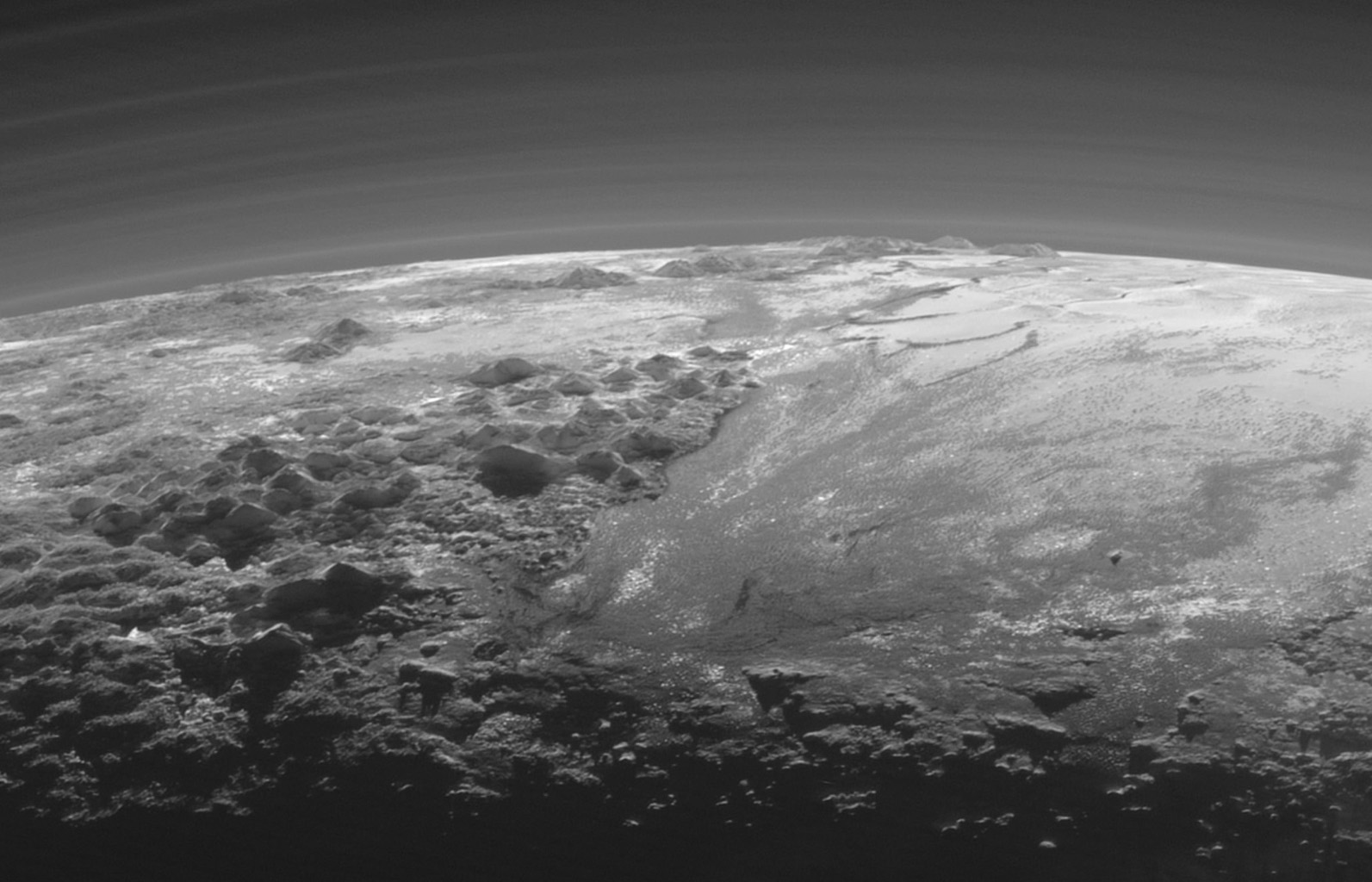And surely real news of astronomy beats an imaginary guy in tights and a cape.
 |
| The Mountains of Madness (er, Pluto) |
Case 2: As the New Horizons probe leaves Pluto in its rear-view mirror, where is that plucky spacecraft headed? "To 2014 MU69," you say? Indeed -- but said Kuiper Belt Object now has a much catchier name. See "New Horizons’ next target has been dubbed Ultima Thule."
And well-chosen, IMO. In its original/classical meaning, Ultima Thule was the northernmost point. From the perspective of ancient Greece and Rome, to be the northernmost point was also to be the coldest. The farthest place from the Sun to be targeted by a human probe will also be on the nippy side. And also dark, which leads us to ...
 |
| Milky Way center (no, not nougat) |
Case 4: If there is anything darker than a black hole, it would be dark matter, which interacts with normal matter only through gravity. That is, dark matter is invoked to explain observations that would make sense if a great deal of unseen matter were strategically clumped Out There (e.g., on the outskirts of galaxies). Alas, every attempt so far to identify a physical nature for dark matter has fallen through. As in this most recent instance: "Back to square one on dark matter find." And finally ...
 |
| JWT and friends |
For an observatory originally planned for 2007 launch, and repeatedly delayed, we now have yet another schedule slip. I keep reminding myself that the Hubble, a noble predecessor of the JWST, also had its share of snags before becoming the magnificent space-based observatory it is today.
TTFN.

































No comments:
Post a Comment